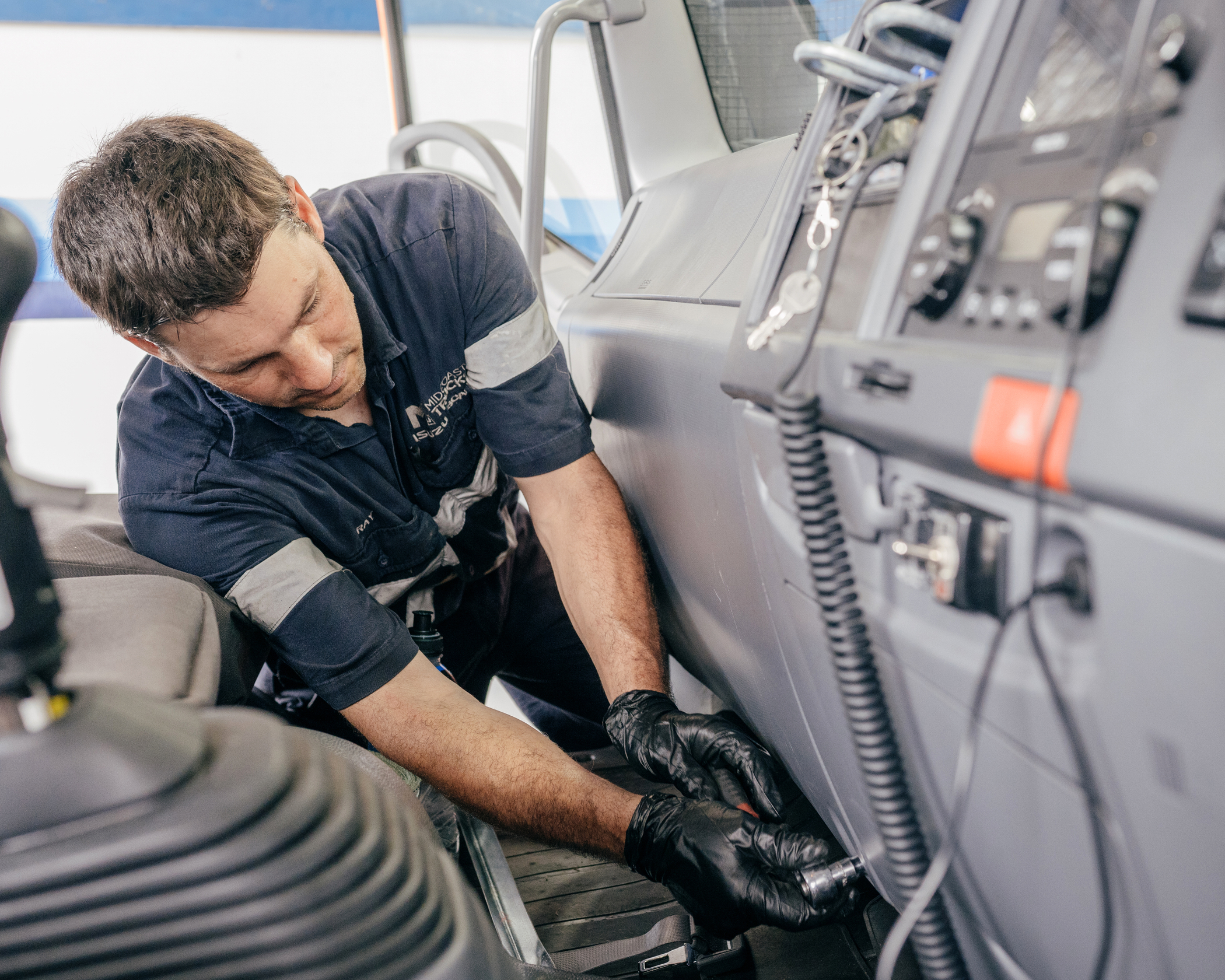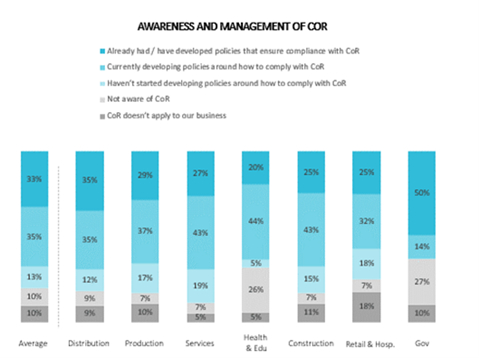TACKLING AUSTRALIA’S COMPLIANCE CHALLENGES

Having systems in place
Under HVNL and the CoR amendments, operators are required to maintain robust safety systems and controls to identify, assess and manage risks associated with activities within the supply chain. The aim of this was to switch the focus from being reactive after an incident, to having businesses take a very proactive approach to the safety of staff, operations and the public. In essence, these systems and controls are put in place to reduce the risk and consequences of incidents on the roads. They’re founded on what the NHVR has identified as the following core risks of road transport safety: speed, fatigue, mass, dimension, loading and vehicle standards. These core risks also form the pillars that lead the Heavy Vehicle National Regulator (HVNR) to the prosecution of offenders, so without those appropriate processes in place, it’s fair to expect you’ll be quickly up the creek … without a paddle. Individuals determined to be responsible for a breach could be liable for a fine of up to $300,000, or five-year’s imprisonment. Companies also toe the line of up to $3 million for non-compliance, depending on the severity of the offence.Pain or praise
In the case of CoR, it seems the stick (or the honey) have yet to yield the desired compliance outcomes. We are now approaching four years on from the amendments to CoR law, and still see astonishingly varying levels of awareness, understanding and compliance with the requirements. Encouragingly, Isuzu’s recent independently conducted research (The Future of Trucking Report) noted 69 per cent of larger fleets (>20 trucks) had or were in the process of developing CoR policies. But in sharp contrast, one in three smaller fleets (1-5 trucks) were completely unprepared or unaware of their CoR obligations. This was particular prevalent across operations where transport did not constitute the ‘core’ business.
Source: Isuzu’s Future of Trucking Report
It’s apparent there is still significant work to be done in offering education to these fleets in particular, and support in their risk identification and management.State breakdown
According to our Future of Trucking Report, the knowledge, understanding and implementation of CoR, varies significantly from state to state. Road transport operators in New South Wales and the ACT (on aggregate) appear to be leading the pack in developing and employing policies that ensure compliance. In Victoria, Tasmania, South Australia and the Northern Territory, operators showed a slightly higher percentage of already developed policies to ensure compliance, albeit with a lower percentage in current learning and further development of policies for CoR.
Source: Isuzu’s Future of Trucking Report
By comparison, the report noted that Western Australia had the lowest percentage of existing policies that ensure compliance with CoR and a concerning rate of 22 per cent of businesses unaware of CoR law or obligations. Overall, we can take away that CoR management practices are improving steadily, although slowly across the country, certainly with room for improvement, but with the long-term view of achieving coverage across the full spectrum of industries involved in road transport.Critical learning
While conceding that new laws and notions such as CoR take time to permeate, continuing to raise awareness is a task for us all. I believe that one area to be developed is helping individuals understand CoR, by narrowing down the larger concepts to have greater meaning and impact on their day-to-day work. Coming from a background in service, I am more than familiar with one matter in particular: hammering home the importance of proper vehicle maintenance and servicing, and keeping up with adequate maintenance regimes and planning will help to ensure safety of drivers and other road users, and meet associated compliance obligations. But take freight delivery and logistics as another example. Several high-profile prosecutions have brought necessary attention to compliance in loading and fatigue management. These cases have highlighted that the risk of prosecution is no longer dependent on a road offence taking place; the NHVR only needs to establish that the business, or someone within it, hasn’t taken adequate precautions to avoid a foreseeable risk. Specific examples such as this, with the threat of charges to be laid against all those responsible in the chain—your workmates, managers, even the bloke who trolleys your goods into the store—should be incentive enough to make sure your business has a good understanding of your responsibilities regarding CoR.Culture not a buzz
In order to ensure the business is compliant and developing good safety management systems, all those within the transport chain must have a very clear understanding of the policies and procedures. This means each person knowing what they need to do to stay compliant but also being aware of the responsibilities of others (and not just with CoR, but all relevant legislation). It’s a learning curve to say the least. For business owners and managers, evolving a culture that embraces safety is key. CoR practices should become as natural to your staff as any other OH&S process that takes place in the business. There are fantastic resources available through the NHVR, state government websites and through professional independent agencies and Registered Training Organizations (RTOs), which have emerged to offer courses in all aspects of CoR training. And although the onus must be on each operator out there to ensure all staff, from schedulers through to drivers, operators and management, are well versed on their specific responsibilities, it should also fall back on everyone—including industry leaders—to keep the topic fresh in mind.


Lead the charge with Australia’s favourite truck.
2025 heralds Isuzu Trucks’ 36th year as market leader.* Number one in more than just sales, though, Isuzu Trucks has an unparalleled dealer support network, customer care program, truck range, and legendary reliability. To get behind the wheel of a winner, get into your nearest Isuzu Trucks Dealer now or visit isuzu.com.au
Learn More



